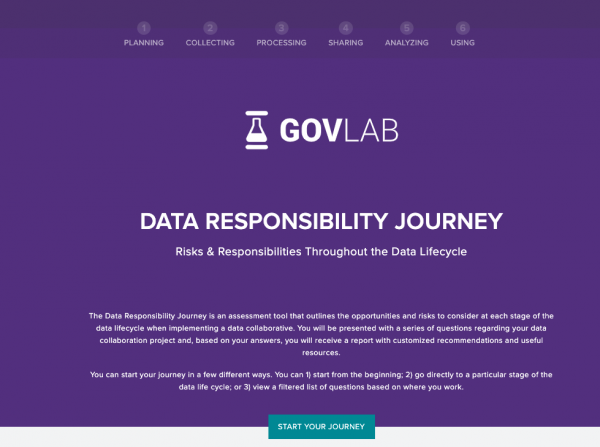Launch of Public Beta of the Data Responsibility Journey Mapping Tool: “Data Collaboratives, the purpose-driven reuse of data in the public interest, have demonstrated their ability to unlock the societal value of siloed data and create real-world impacts. Data collaboration has been key in generating new insights and action in areas like public health, education, crisis response, and economic development, to name a few. Designing and deploying a data collaborative, however, is a complex undertaking, subject to risks of misuse of data as well as missed use of data that could have provided public value if used effectively and responsibly.

Today, The GovLab is launching the public beta of a new tool intended to help Data Stewards — responsible data leaders across sectors — and other decision-makers assess and mitigate risks across the life cycle of a data collaborative. The Data Responsibility Journey is an assessment tool for Data Stewards to identify and mitigate risks, establish trust, and maximize the value of their work. Informed by The GovLab’s long standing research and practice in the field, and myriad consultations with data responsibility experts across regions and contexts, the tool aims to support decision-making in public agencies, civil society organizations, large businesses, small businesses, and humanitarian and development organizations, in particular.
The Data Responsibility Journey guides users through important questions and considerations across the lifecycle of data stewardship and collaboration: Planning, Collecting, Processing, Sharing, Analyzing, and Using. For each stage, users are asked to consider whether important data responsibility issues have been taken into account as part of their implementation strategy. When users flag an issue as in need of more attention, it is automatically added to a customized data responsibility strategy report providing actionable recommendations, relevant tools and resources, and key internal and external stakeholders that could be engaged to help operationalize these data responsibility actions…(More)”.